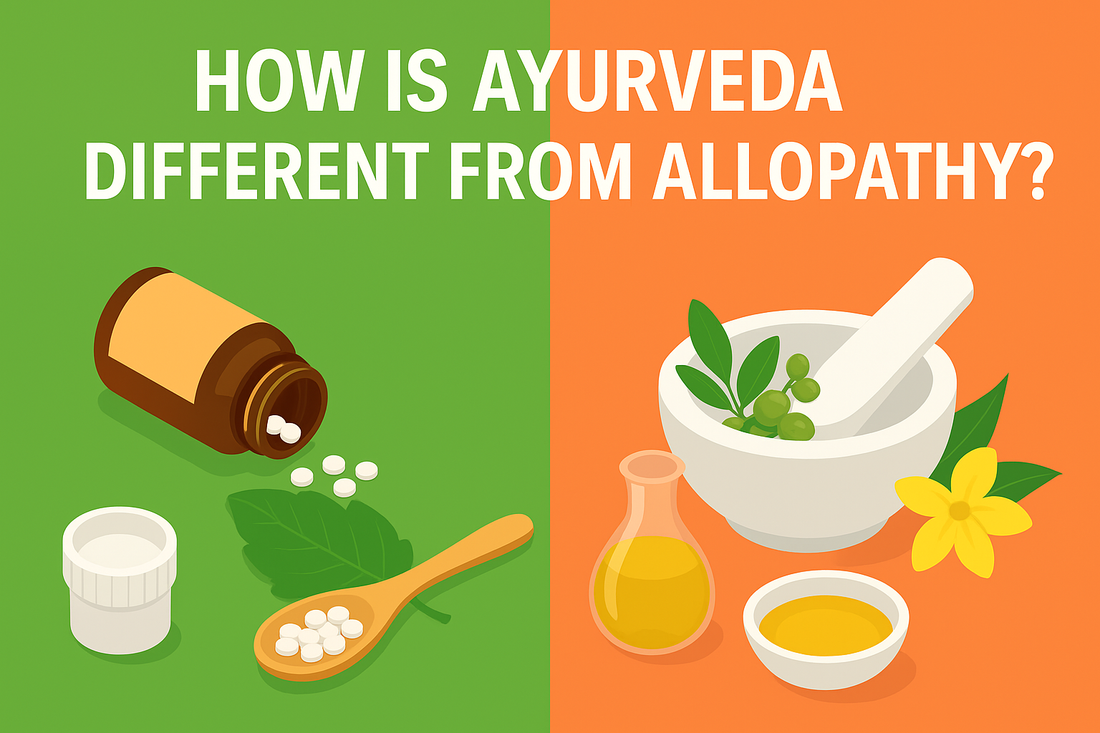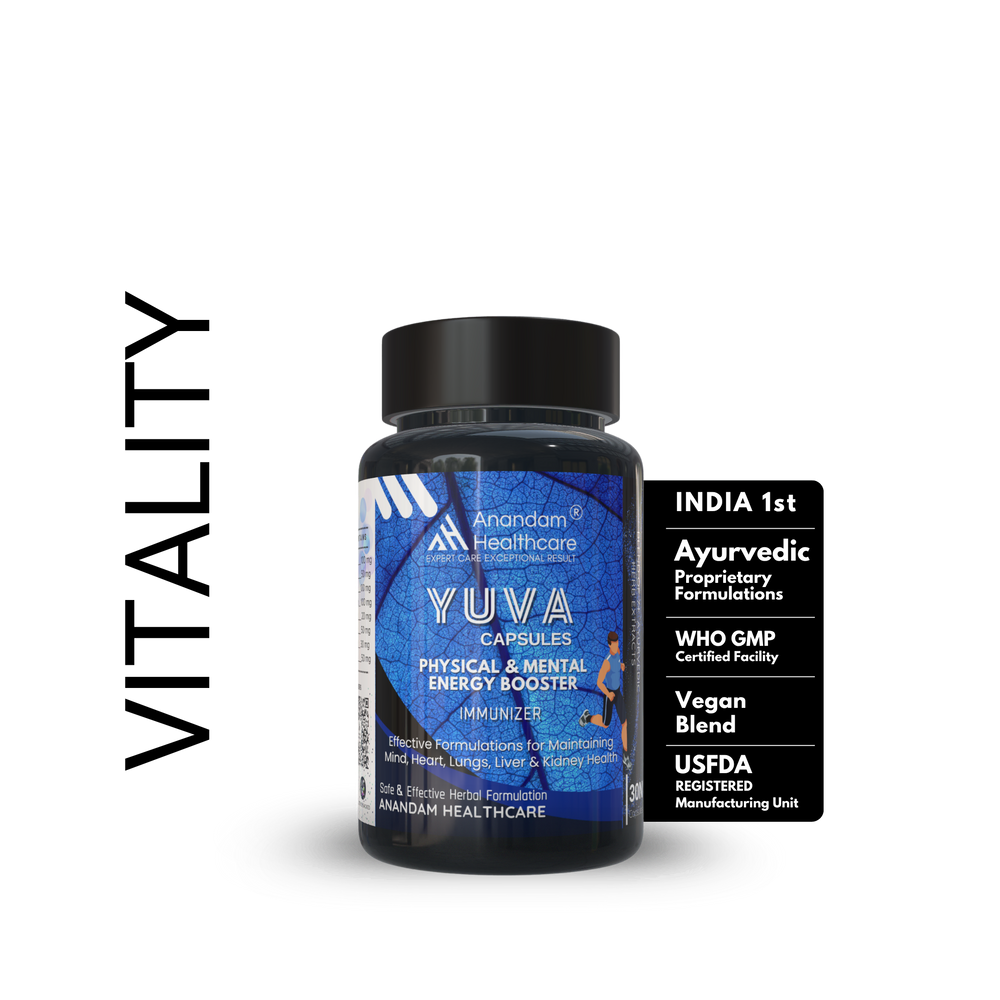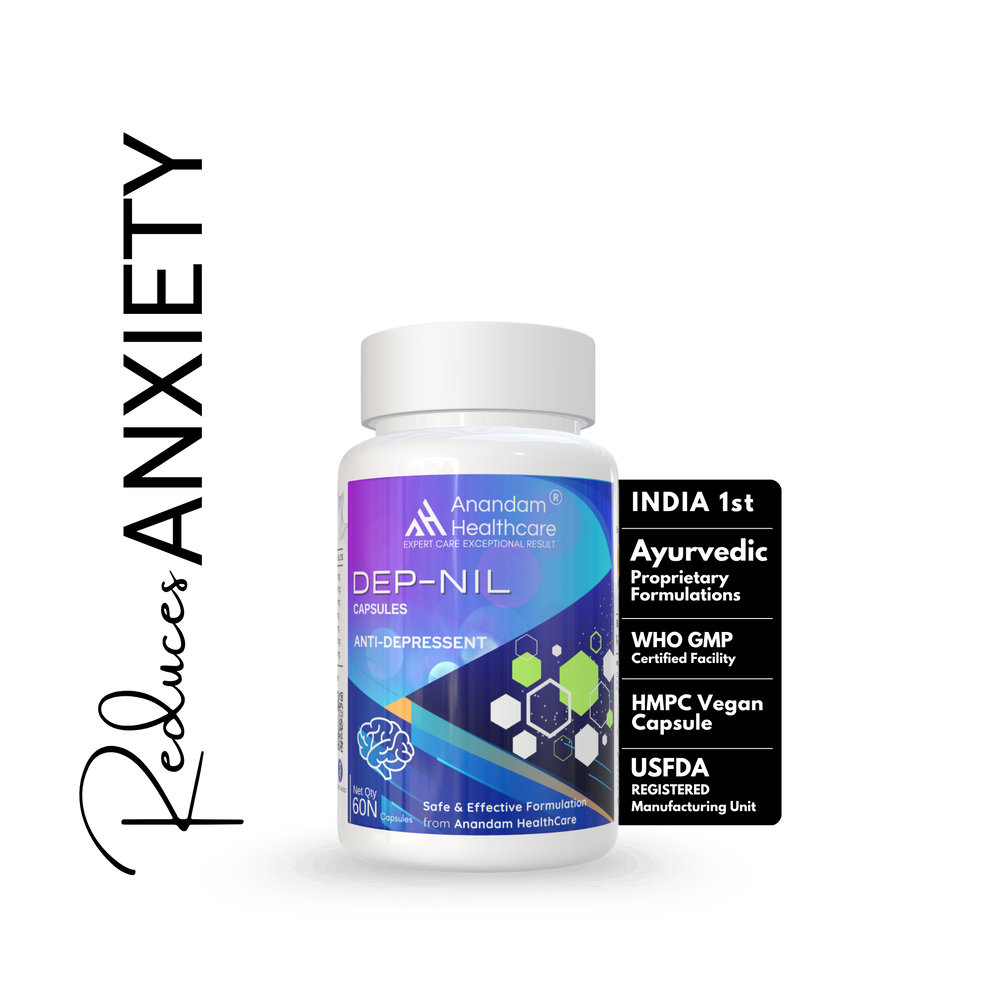
Introduction
India has always been rich in herbs, spices, culture, colours, food, and Ayurveda. As Ayurveda has been used for centuries, it is the most trustworthy solution for any health issue. When we talk about its qualities, the term "Allopathy" comes to mind. Which one is best, Ayurveda or Allopathy? To understand both terms, we first need to know about each.
When modern culture was trying to reach India, Ayurveda was the primary treatment. Then Allopathy reached indians and due to its instant results, Indians started using it more than their natural treatment. After the years passed and people started observing that it has a lot of side effects. They started coming towards the natural cure "Ayurveda".
Ayurveda and Allopathy both the systems work differently, and it is shown below:
What is Ayurveda?
Ayurveda is a completely natural medicine system that works in a holistic way for our body. It is a 5,000-year-old medicine system that has its roots in India. The word Ayurveda is derived from the Sanskrit language, where "Ayur" means Life and "Veda" means knowledge. So Ayurveda means " Knowledge of Life". Where modern medicine treatment focuses on treating when you're infected by any virus, bacteria, etc. Ayurveda focuses on keeping your body healthy and preventing problems before they happen.
How Ayurveda Works?
For Ayurveda, every person is unique. Everyone has their own body type, so in Ayurveda, a person is treated individually with the proper personalized health plan, where they understand what the body needs.
It works on an equation, which is when the body, mind, and spirit are in balance; you stay healthy. And when they are not, you get sick. So to keep them in balance, Ayurvedic doctors work using natural methods.
What is Allopathy?
Allopathy is the medicine system famous as "modern medicine" or "western medicine". You find it in clinics, medicals, hospitals, and in most doctor's office. It is everywhere in today's world.
How Allopathy Works?
Modern medicine tries to find specific diseases and then treat the particular one with targeted treatments. Allopathic doctors use scientific research and clinical trials to prove that treatments work. Every medication goes through years of testing before doctors can prescribe it to patients.
Speed of Results-
Allopathy - It can show results instantly from symptoms. Painkillers can give relief in hours, antibiotics can clear infections in days.
Ayurveda - It works slowly because it works on root cause. Result can come in weeks but often stay last longer.
Cost Differences -
Allopathy- It can be very expensive especially in serious conditions, surgeries and regular medications.
Ayurveda - This is much more affordable. Herbs and lifestyle changes cost less than prescription drugs and medical treatment procedures.
Conclusion-
The key is understanding that you have choices. You don't have to accept that chronic health problems require lifelong medication management, expensive procedures, and ongoing side effects. Ayurveda offers a time-tested alternative that has helped millions of people achieve lasting health and vitality.
Healthcare is too important to limit your options. Whether you choose to try Ayurveda first or use it alongside conventional treatment, exploring this ancient system of medicine could be one of the best decisions you make for your long-term health and well-being.
The growing body of scientific research, increasing mainstream acceptance, and countless success stories from real people suggest that Ayurveda isn't just an alternative - it's often a better choice for creating the healthy, vibrant life you deserve.






